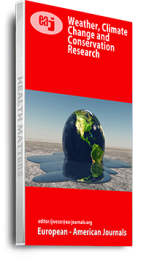Currently, climate change and its impacts is a key issue in Ethiopia. Adaptation to climate change is making a system suitable to moderate the impact of climate change or deal with the consequence or to take advantage of new opportunities. In line with this, the research has assessed the role of watershed management for climate change adaptation in Adwa in the case of mariamshewito Watershed. To address the above objective, the study used both qualitative and quantitative data type. In order to collect valuable information, semi structured questionnaire, focus group discussion, key informant guide checklist and observation tools from both primary and secondary data sources were applied. Similarly, different statistical methods such as percentage of frequencies, bar graphs, X 2 test, independent and paired sample T-Test and one way ANOVAs were used. The key finding of the research presents that due to different interventions the livelihood of the community was diversified and enhanced especially; income, soil fertility, crop productivity, forest, water and food availability become improved. Even if it has some gaps in the process of implementation such as lack of linkage between sectors, lack of targeting on the poor, young and women participation, weak stakeholder linkage. It is concluded that the watershed management can play a significant role to enhance household’s livelihood and cope with climate change impacts. Then, to fill the gap and go along the sustainability of the watershed, the study recommended based on the findings.
Keywords: Climate Change /variability/, Climate change Adaptation, Community based Watershed Management, Livelihood Diversification Index

